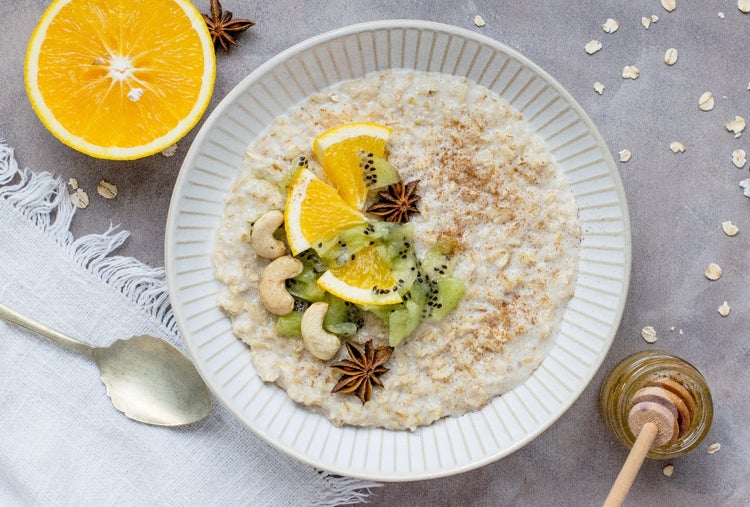NEWS FLASH: Are Low-Sugar Labels Misleading? Lifting Less To Be Stronger, And Dairy Milk Linked to Breast Cancer Risk

Every week, we’re bringing you a roundup of the latest health and wellness news to hit the wire. This week, we look at why “low sugar” labels may cause people to eat more of it, how lifting less weight may help you better meet your goals, and how dairy milk appears to significantly increase breast cancer risk.
Can you trust those healthy food labels?
Not always. A story in The New York Times examines how food and drink products marketed as “just a tad sweet” or “low-sugar” often contain more added sugar than products without any health-related claims on their packaging.
A recent study analyzing millions of grocery purchases in the U.S. found that dubious claims about fat, salt and sugar were common. Many fruit juices, for example, that claimed to be “low in sugar” tended to have added sugar—more than competing products not making a similar claim. Many cereals labeled low in calories were found to have more calories than their rivals not making claims. And sports, energy and coffee drinks claiming to be low-sodium on their label were found to have 17 percent more sodium on average than those products with no sodium claims.
Here’s one example from The New York Times article: The label on Honest Tea’s organic peach-flavored tea says it is “just a tad sweet,” yet it contains 25 grams of added sugar; the equivalent of six tablespoons of granulated sugar, or half the daily requirement recommended by the federal government.
This labeling is problematic for those trying to make healthy choices, as in recent years, officials have linked added sugars to heart disease, Type 2 diabetes, and obesity. And consumer advocates are urging the Food and Drug Administration to step in and set definitions for these claims and up its enforcement.
Clashes over these labels have led to a series of lawsuits, including one in which Kellogg agreed to pay $20 million for falsely advertising of some of its cereals as heart-healthy and lightly sweetened.
Two additional lawsuits have accused Whole Foods and Trader Joe’s of disguising added sugar in their instant oatmeal by calling sugar “dehydrated cane juice solids” in the ingredient list.
Bottom line: Don’t believe package hype. Read the nutrition label and see how many grams of added sugar your food contains.
Less can be more, with weights
Changing up the amount of weight you lift could help you make gains with less effort, according to a new study covered by U.S. News & World Report.
In traditional strength training, a technique called “one rep max” dictates the weight load for all sets. New research compares this method with an approach called “load velocity profile” in which athletes lift varying weights from session to session.
Over six weeks, those who used the load velocity profile method became stronger than those who used one rep max, despite lifting less overall, according to sports scientists at the University of Lincoln in the U.K. Researchers just adjusted the load up or down as needed.
Published in the Journal of Strength and Conditioning Research, the findings could make it easier for athletes to meet their goals with less fatigue.
“It’s about making sure the athlete is lifting the optimal load for them, on that particular day,” Harry Dorrell, a lecturer in the University’s School of Sport and Exercise Science explained. “If you lift too little then you won’t stimulate the body as you intend to; but if you lift too much you’ll be fatigued, which increases the risk of injury.”
Drinking cow’s milk dramatically increases the risk of breast cancer
A new study out of Loma Linda University has found drinking dairy milk to be associated with a greater risk of breast cancer in women.
The study of 53,000 North American women, published in the International Journal of Epidemiology and covered by Science Daily found that drinking as little as one cup per day may increase breast cancer risk up to 50 percent. Consuming ¼ to ½ cup daily was associated with a 30 percent higher risk. And those drinking two to three cups had a 70 percent to 80 percent higher risk.
One of the study’s authors said the association between breast cancer and dairy milk may be related to the hormone content of dairy milk, as breast cancer in women is hormone-responsive. Also, consumption of dairy and other animal proteins is also associated with higher blood levels of the hormone insulin-like growth factor 1 (IGF-1), which is thought to promote certain cancers.
Photo credit: Monika Grabkowska, Unsplash